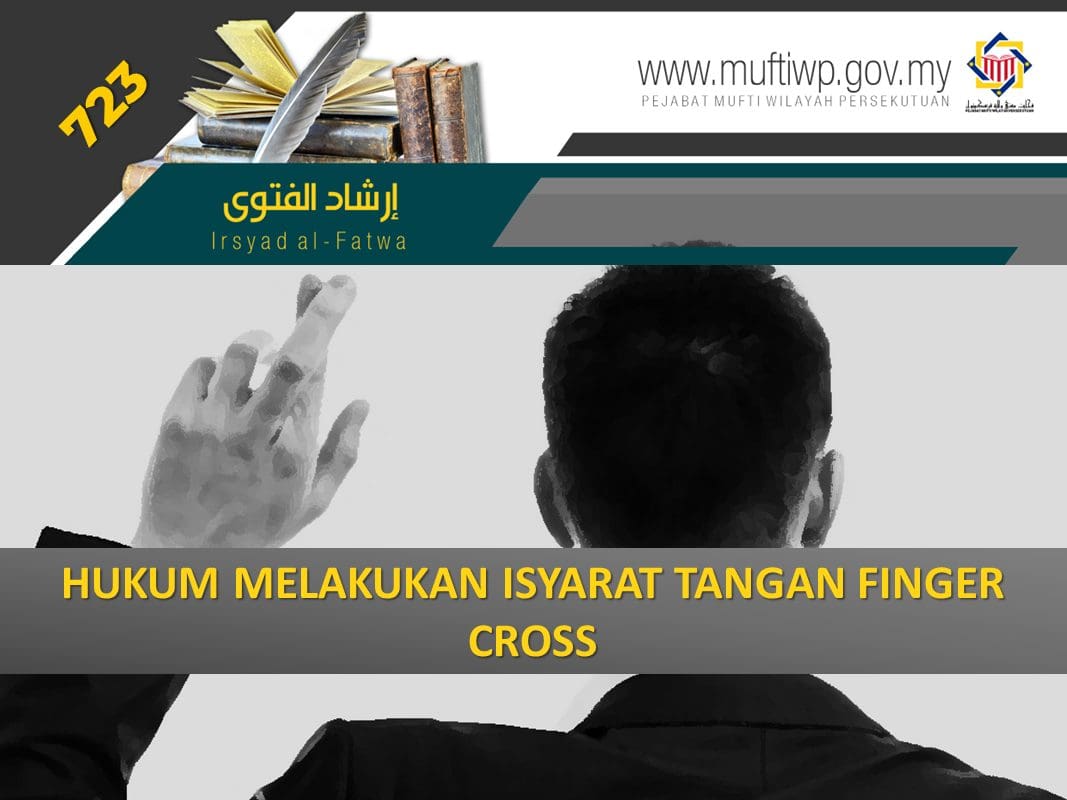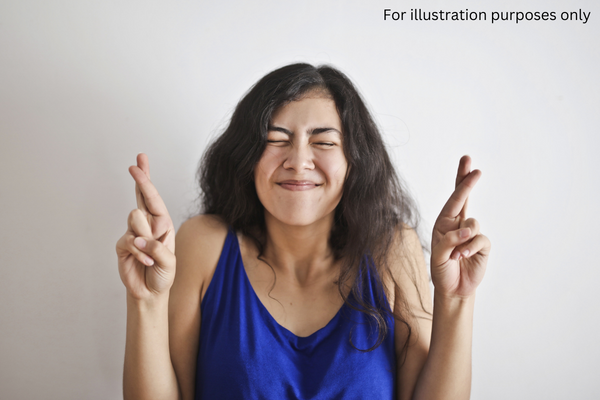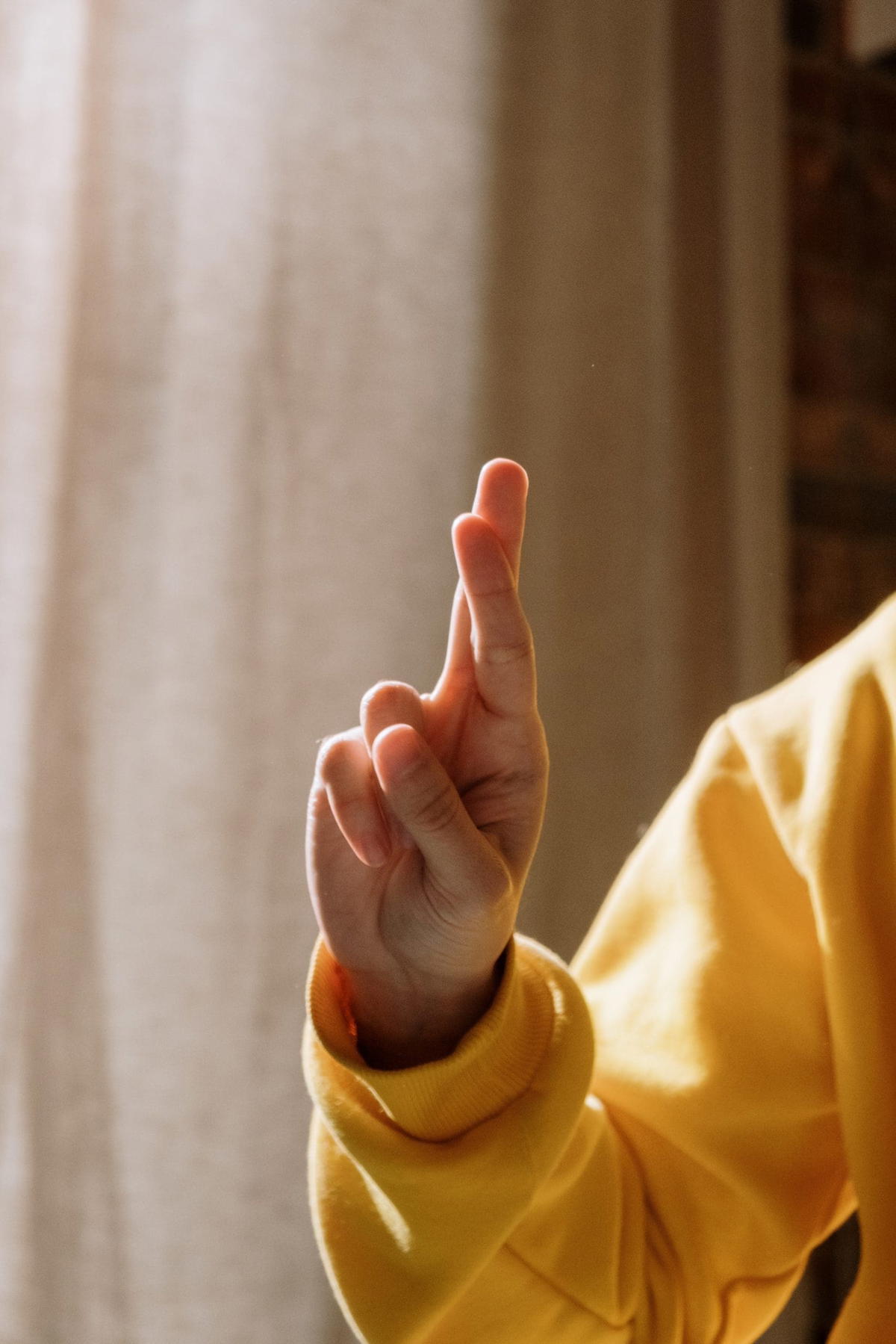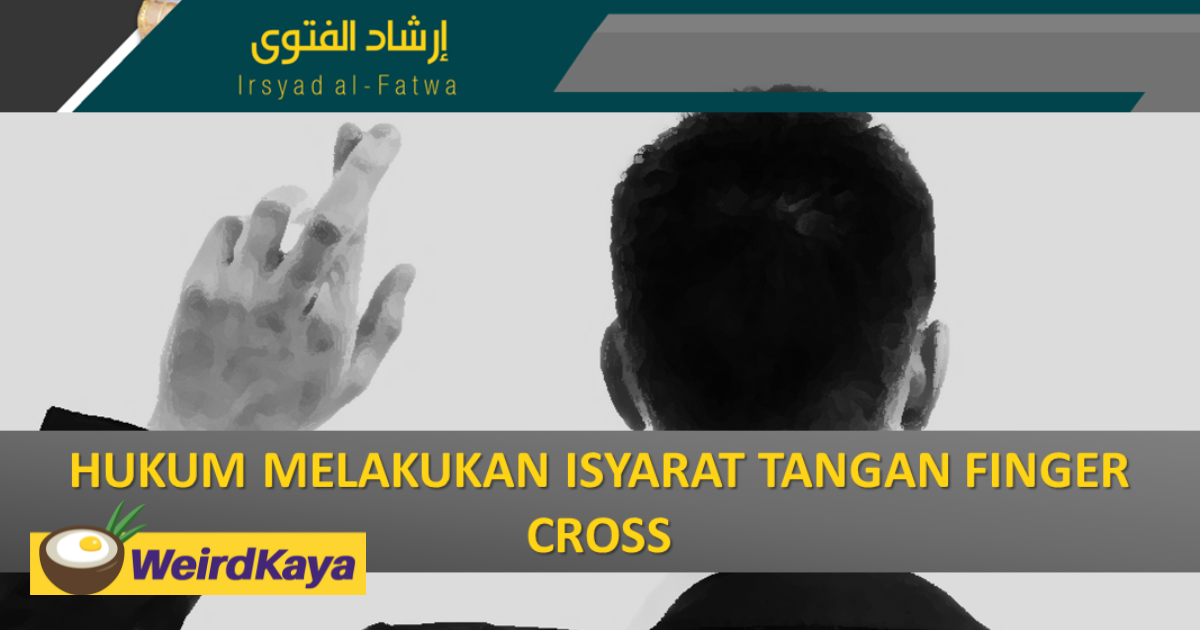Whenever we or someone we know is about to undergo an important event such as an interview or exam, we would wish them luck by saying “fingers crossed” or make the gesture.
However, that may be not lawful anymore as doing so is now ruled to be haram (sinful).
Crossing fingers not allowed in Islam
In a Q&A list published on the FT Mufti’s Office website on Monday (Oct 24), it outlined the reasons why crossing one’s fingers to bring good luck is forbidden under Islamic teachings.

In response to a question whether crossing fingers, a gesture which is gaining popularity on social media, was permitted in Islam, this is what the mufti’s office had to say:
It is fine to make signals or crossing fingers for communication purposes, while believing that only Allah SWT has the power to decide one’s luck or destiny.
“Nevertheless, one should refrain from crossing fingers as it invites defamation and imputation. As such, it is sinful to believe that crossing fingers would bring wealth and good luck, as well as protecting one from misfortunes.”

The FT mufti’s office also urged all Muslims to instead pray and request Allah SWT to keep them safe from all harm.
Gesture allegedly has Christian roots
Citing an article from an author named Larry Ray Palmer, the FT mufti’s office said that crossing fingers was believed to have originated from the early years of Christianity, where some historians believe that it was a prevalent form of warding off evil spirits.

Another theory that seem to suggest that it had ties to Christianity was that Christians crossed their fingers as a secret signal to identify their own as Christianity was an outlawed religion at the time.
However, the FT mufti’s office acknowledged that there has been no solid proof to back any of these theories.
Nonetheless, they still insist that crossing fingers isn’t permissible in Islam.
Believing that wealth and good luck will happen on oneself by crossing fingers clashes with Islamic principles.
What do you think of this ruling? Let us know in the comments!
READ ALSO:



